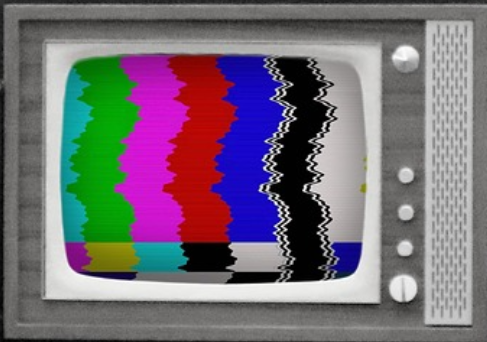
For 25 years, Australia’s international TV voice has been a political plaything and a broadcasting afterthought, constantly facing chops and changes.
Australian governments have treated our international TV service more as a political game than a policy interest. Canberra’s attention has been spasmodic and fickle.
For the Australian Broadcasting Corporation, international TV has been a constant but quickly changing problem, and too often an afterthought.
The government’s review of Australia’s media reach in the Asia–Pacific needs to peer into the future by taking lessons from history. Past performance may not be a reliable indicator of future performance (as superannuation industry advertising has to testify), but past stuff-ups can foretell future pitfalls. And in Oz international TV, the stumbles have a serial rhyme.
A simple, stark illustration of the history of chop, change and political spasm is to run through the eight changes of identity and ownership over the 25 years of Australia’s international TV service.
- First was Australia Television (ATV) in 1993, when the Keating Labor government gave the ABC start-up funding. Unlike the rest of the ABC, though, ATV carried commercials. Canberra wanted it, but didn’t want to pay for it.
- Channel 7 was given control in 1998 (twice—once with news, then as a pure shopping channel). The commercial network made a hash of it, didn’t make any money and lost interest. So …
- In 2001, it went back to the ABC as ABC Television International.
- A year later, it was rebranded as ABC AsiaPacific.
- Then came another name change: the Australia Network (2006).
- In the 2014 budget, the Coalition cut all funding to the Australia Network. It closed, to be replaced by a drastically cut-down operation.
- The Australia Network’s replacement, Australia Plus, started in September 2014.
- From 1 July 2018, the network has been renamed ABC Australia.
Neither side of Oz politics emerges with much credit from this zigzag. Canberra’s level of interest has been as changeable as the name of the service.
The moment of creation under Labor 25 years ago illustrates the recurring themes of limited Canberra attention, political crosscurrents, and plenty of vision but little money.
Launching ATV to broadcast to the Asia–Pacific, the Keating government and the ABC boasted of its significance for regional engagement and Oz interests, ranging from media and education to business and foreign policy. Confident talk wasn’t matched by cash or commitment.
The ABC sought to establish an international version of its domestic service, but couldn’t devote proper resources to ATV—not least because the government didn’t want to pay for what it knew Australia needed.
Programming suffered because the ABC had domestic copyright to broadcast programs within Australia, but didn’t own international rights. The Keating government knew ATV was worthwhile, but wouldn’t give anything more than start-up funding for the satellite service. Once established, it would have to pay its own way with advertising.
The refusal to launch ATV as a fully funded public broadcasting service (like the rest of the ABC) was telling. A hybrid design—part ABC, part commercial—was the half-arsed response of a half-hearted government. That half-in, half-out problem continued through the zigzagging history.
Domestic politics too often twists or derails discussion of Oz international TV. The Keating cabinet’s debates about establishing ATV demonstrated the problem, veering off into rant-and-rave sessions about how ABC domestic reporting was hurting the Labor government. Much bile was directed at the managing director of the ABC, David Hill, who’d fought budget cuts to the corporation with a famous campaign proclaiming that the ABC cost each Australian only ‘eight cents a day’.
A couple of times when ATV was on the cabinet agenda, Hill came from Sydney to Canberra to support the idea. The trouble was, as one Foreign Affairs official told me, having the ebullient ABC head sitting in the cabinet anteroom was a disastrous provocation. After navigating past Hill, ministers would have another ABC hate session, then defer the international TV submission to another day.
Themes from the creation story recur over the 25 years:
Political change overturns constant policy: Each change of federal government—Keating to Howard to Rudd to Abbott—has been a chop-change moment for international TV. The foreign policy consensus on Asia–Pacific interests shared by Labor and Liberal governments has never translated into agreement on the worth of our broadcasting service to the regions (Southeast Asia and the South Pacific, different audiences and different regions). Thus …
The gap between big interests and little cash: The high rhetoric of Asia–Pacific engagement is negated by the low commitment of dollars to Oz regional broadcasting.
Domestic ABC versus international ABC: All federal governments come to fear/distrust/hate the way the ABC reports on them; that perennial Canberra rant-and-rave problem obscures a clear understanding of what public broadcasting can do for Australia in the region. It’s a problem that has a funny dimension: politicians know the power of the ABC, but they’re not willing to use that power to the full to serve our international interests.
International ABC can’t merely be domestic ABC: The ABC’s domestic programming is vital to the international service, but that’s the start, not the finish. Reaching and holding audiences in Asia and the South Pacific is about talking with, not just talking to. Diverse audiences have different needs. Programming has to be for them, not just rebroadcast from Oz.
Chop and change hurts Australian interests: International broadcasting is expensive and complex because a lot of power and riches are in play. Australia’s constant and growing interests in the Asia–Pacific demand a constant and growing broadcast conversation (using ‘broadcast’ as a catch-all term, because all media technologies are converging).
Times are tough in the foreign policy game and good policy responses are scarce. A strong, consistent voice in our region will serve Australian values as well as interests. Get the zigzag pattern off the screen and adjust the international TV picture.